Australian farmers, universities welcome free trade deal with Indonesia
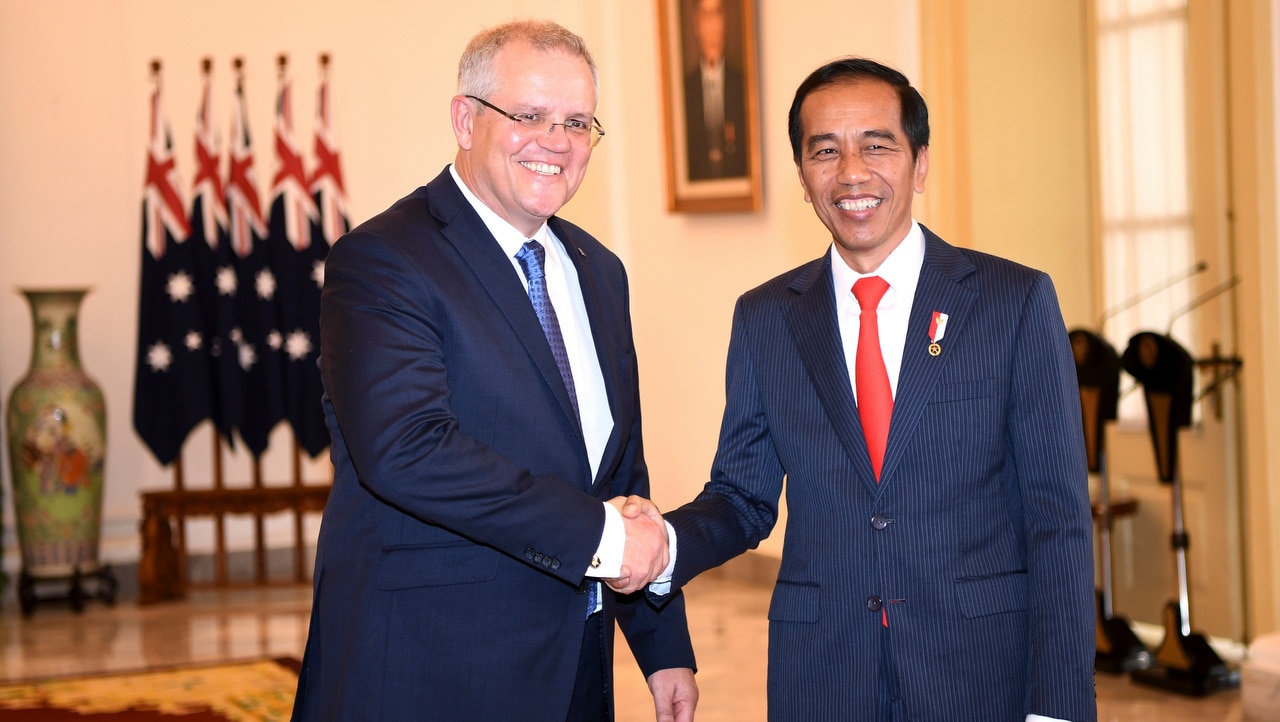
READ MORE
In his first overseas trip as Prime Minister, Scott Morrison has committed to finalising a free trade this November.
The deal, which has been negotiated over eight years, covers five pillars including co-operation on economic affairs, education, counter-terrorism and maritime issues.

A major feature of the deal is a reduction in tariffs with all Indonesian goods exports to enter Australia duty free. Ninety-nine per cent of Australian goods exports will enter Indonesia with no tariffs or under an improved preferential arrangement.
A joint statement released by Prime Minister Scott Morrison and Trade Minister Simon Birmingham said the deal recognised the greater role being played by Indonesia “on the global stage, particularly in the areas of economy and security”.
The pair said Australian farmers and Australia’s vocational training providers are expected to benefit.
“A renewed economic partnership with Indonesia is particularly a major boost for Australian farmers with the grains, live cattle, dairy and horticulture sectors to benefit from greater certainty of access and lower tariffs.
“As a result, Australian farmers will be able to export 500,000 tonnes of feed grains such as wheat into Indonesia tariff free. This is a significant boost for the Australian wheat industry, building on our substantial milling wheat exports.”
Indonesian Foreign Minister Menteri Luar Negeri said the deal would “elevate the comprehensive partnership into a strategic comprehensive partnership.”
Indonesia and Australia signed the Declaration on the Conclusion of Indonesia Australia Comprehensive Partnership Agreement (IA-CEPA)
MOU on Transportation, Creative Economy and Cyber Cooperation were also signed. pic.twitter.com/11bXz08zdr
— Menteri Luar Negeri Republik Indonesia (@Menlu_RI) August 31, 2018
PM Scott Morrison of Australia paid an official visit to Indonesia (31/8)
Indonesia-Australia agreed to elevate the comprehensive partnership into a strategic comprehensive partnership. pic.twitter.com/QoDNnpQHXR
— Menteri Luar Negeri Republik Indonesia (@Menlu_RI) August 31, 2018
‘A massive win-win’
New Prime Minister Scott Morrison will address a business breakfast in Jakarta on Saturday, a day after agreeing to conclude negotiations on a trade deal.
Australia and Indonesia are two of the world’s 20 largest economies and close neighbours, but neither are in each other’s top 10 trading partners.
Two-way trade with Indonesia was worth $16.4 billion in 2017, making Indonesia Australia’s 13th largest trading partner.
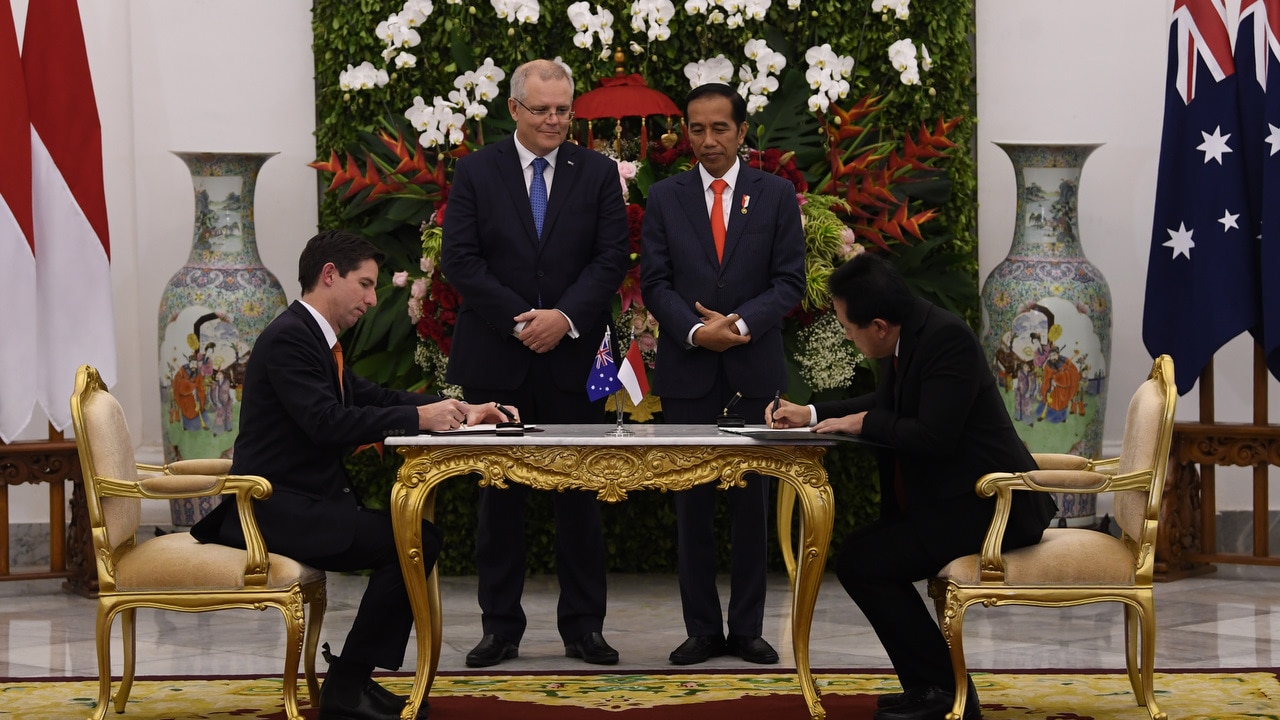
Mr Morrison said the trade relationship was “under done” and he wants serious investment.
“It is a massive win-win. I mean, this is a skills transfer and sharing. This is building up capabilities within economies,” Mr Morrison said on Friday.
“That is the part of the relationship where we need to do some more heavy lifting, the economic relationship.”
Indonesian President Joko Widodo and Mr Morrison signed a memorandum of understanding committing the countries to get a free trade deal done within months.
More access for Australian universities
The agreement will free up Indonesia’s university sector for Australian investors, allowing up to 67 per cent foreign ownership.
Foreign investors are currently barred from majority ownership in an Indonesian university.
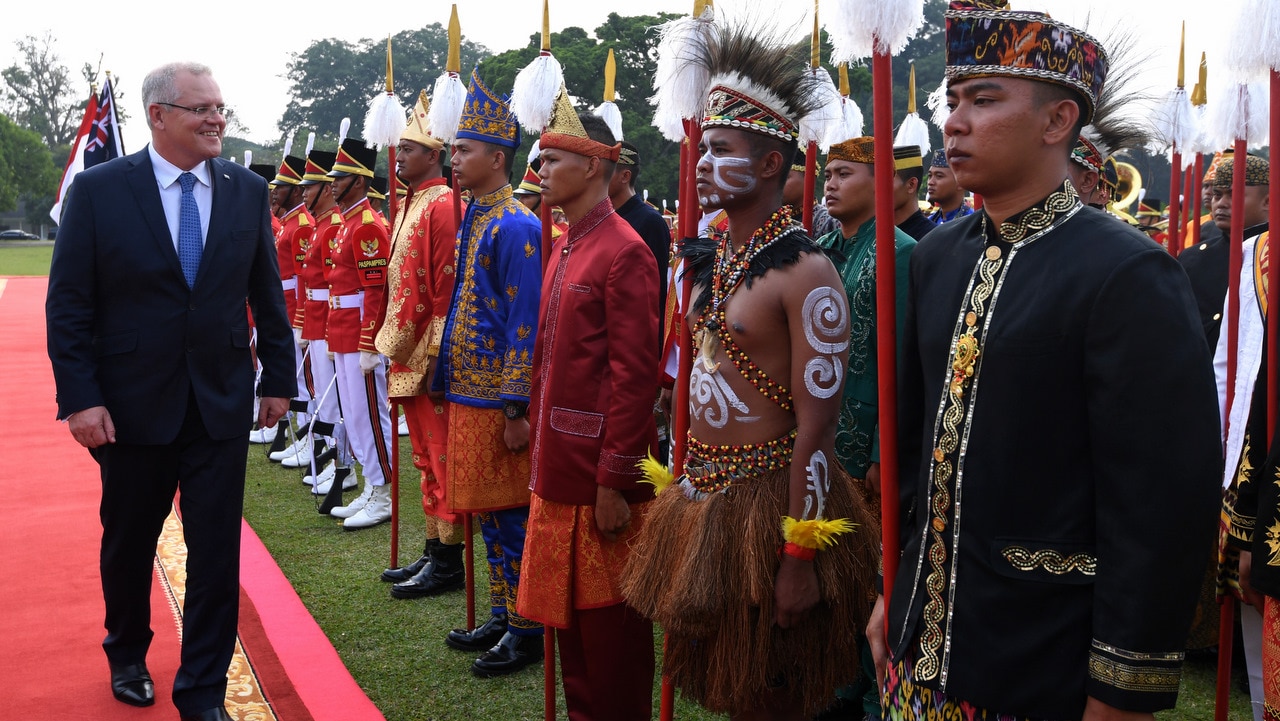
Universities Australia chief executive Catriona Jackson said the greater access for Australian universities to operate in Indonesia would deepen bilateral ties.
“People-to-people contact is one of Indonesia’s five key priorities in any trade agreement with Australia – and universities are one of the most powerful vehicles to forge those connections.”
She said there are more 15,000 Indonesians studying in Australia.
Boost for Australian farmers
The two countries committed in a joint statement to dealing with rising protectionism, intolerance and threats of conflict.
“If left unattended, these may lead to the dismantling of the precious ecosystem and rules-based regional architecture that we have built over the past half century,” the statement said.
The Australian Industry Group said the deal will ensure the Indonesian market gets another look in from Australian businesses.
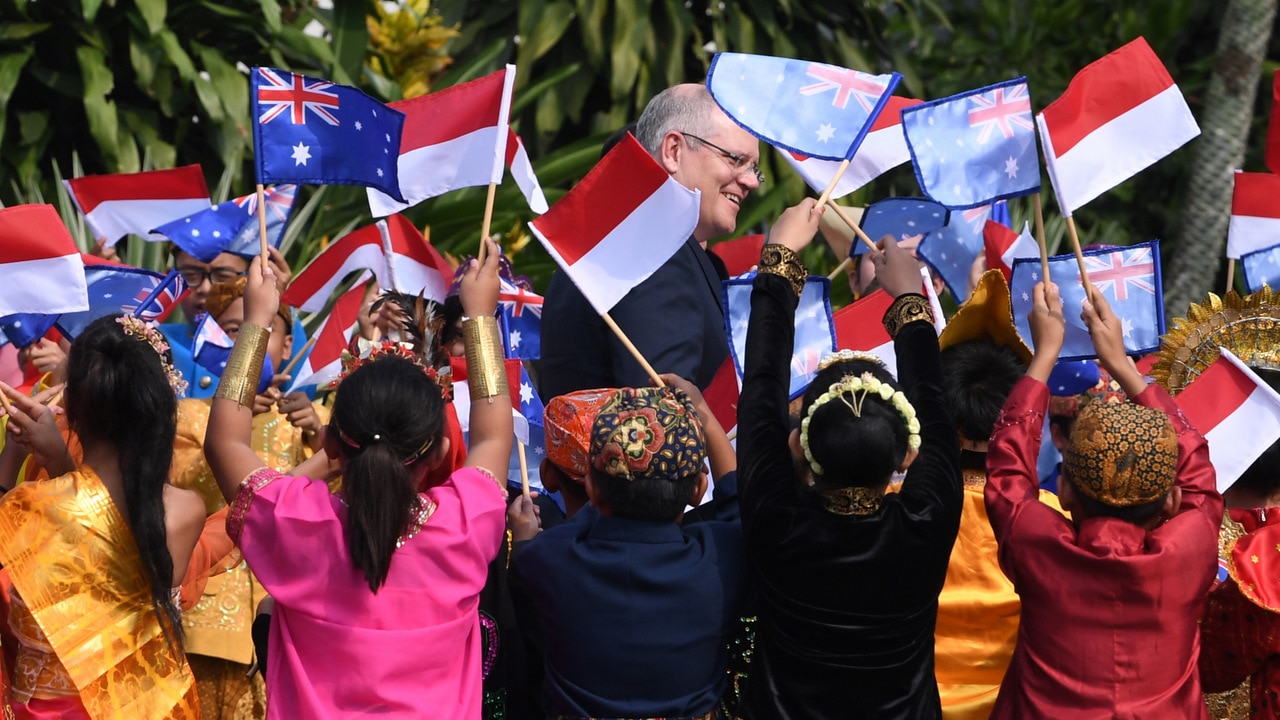
Ai Group Chief Executive Innes Willox said the tariff reductions will “multiply the benefits that already exist through the ASEAN Australia NZ FTA.”
“Exporters will now consider Indonesia to be a more attractive market alternative, particularly in dairy, fruit veg and meat.”
AUSVEG, the industry representative for Australia’s vegetable and potato growers, also welcomed the deal.
“In particular, the agreement to increase import quotas and decrease tariffs for carrot and potato exports – two of the Australian vegetable industry’s key export crops – should lead to an immediate increase in the trade of these commodities to Indonesia, a potentially lucrative market for our growers,” said AUSVEG CEO James Whiteside.
The Australia Indonesia Business Council said as well as eliminating or reducing tariffs, the deal also includes efforts to build on complementary aspects of both economies.
‘Underrated economic partner’ status redressed
The Australian Chamber of Commerce and Industry said the deal was timely recognition of the importance of Indonesia as near neighbours and trade partners.
Mr Morrison will address the group of business leaders on Saturday before flying back to Australia.
Economist Tim Harcourt at the University of New South Wales said the deal will go some way to recognising the true value of Indonesia as an economic partner.
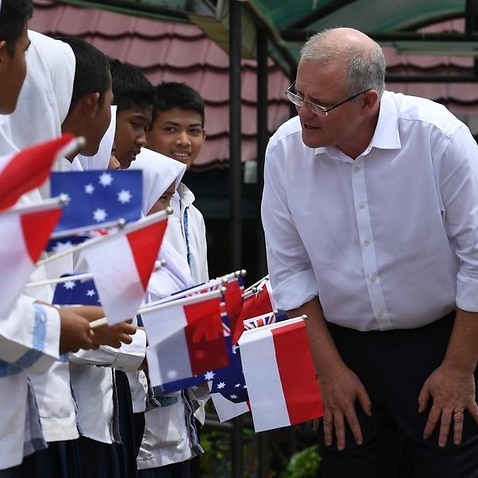
“Wheat exports make up about half of Australia’s agricultural trade with Indonesia,” he said.
“In fact, in the greater scheme of things, Indonesia is a much underrated economic partner. As well as big names like ANZ, Leightons, Commbank, Orica and Bluescope, over 2400 Australian businesses export goods alone to Indonesia and many corporates have receive rates of return four times that of China and India. But there are only 250 Australian companies with a presence in Indonesia, which compares to over 3,000 in other markets like China.”
The full text of the deal is now being “scrubbed” by both sides with both English and Indonesian translations to be provided. The document will then be formally signed before being released publicly.
– with AAP
Article source: http://smh.com.au/nsw/woman-25-found-dead-in-alley-near-chatswood-train-station-20171008-gywrz5.html
Comments
Post a Comment